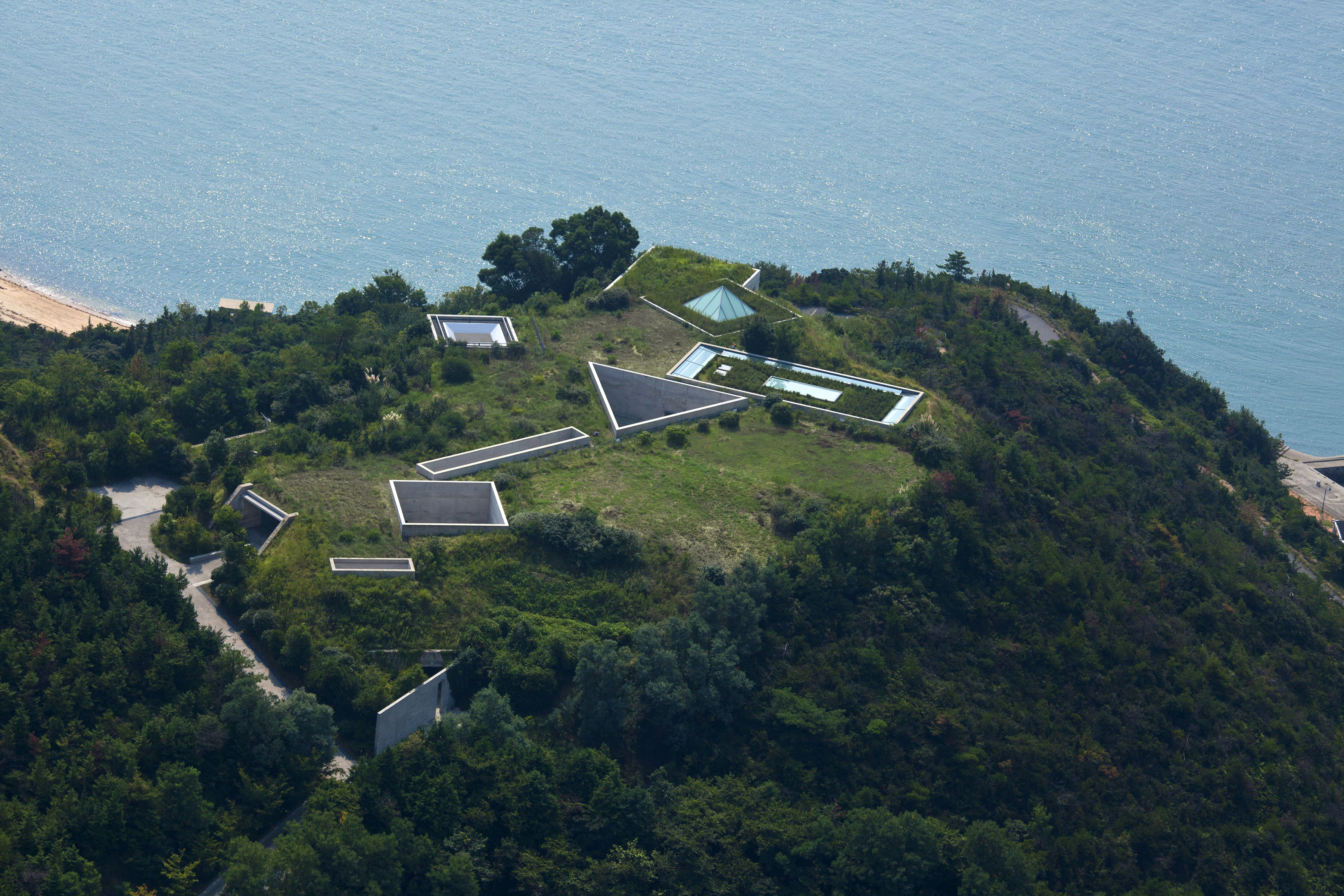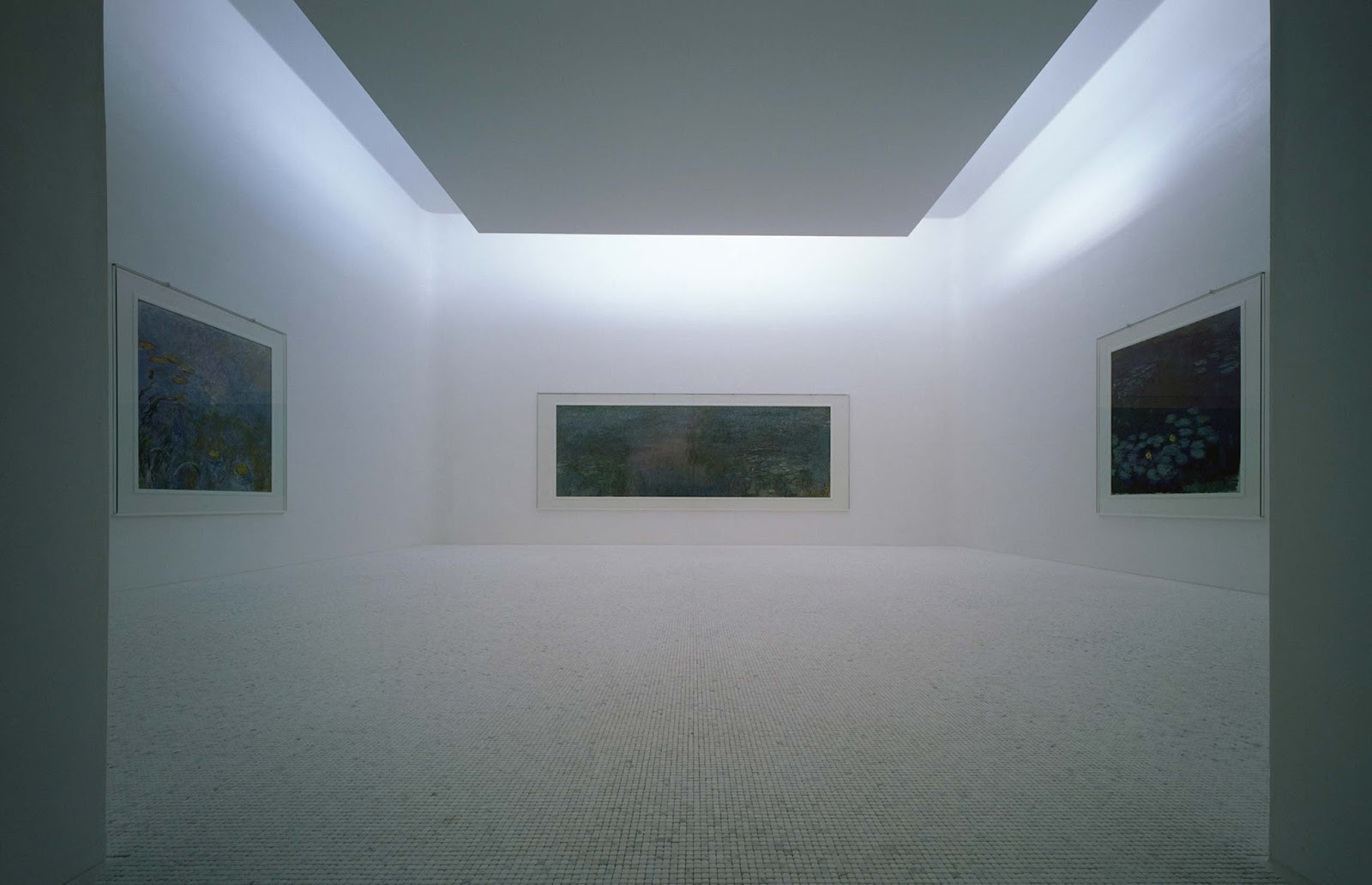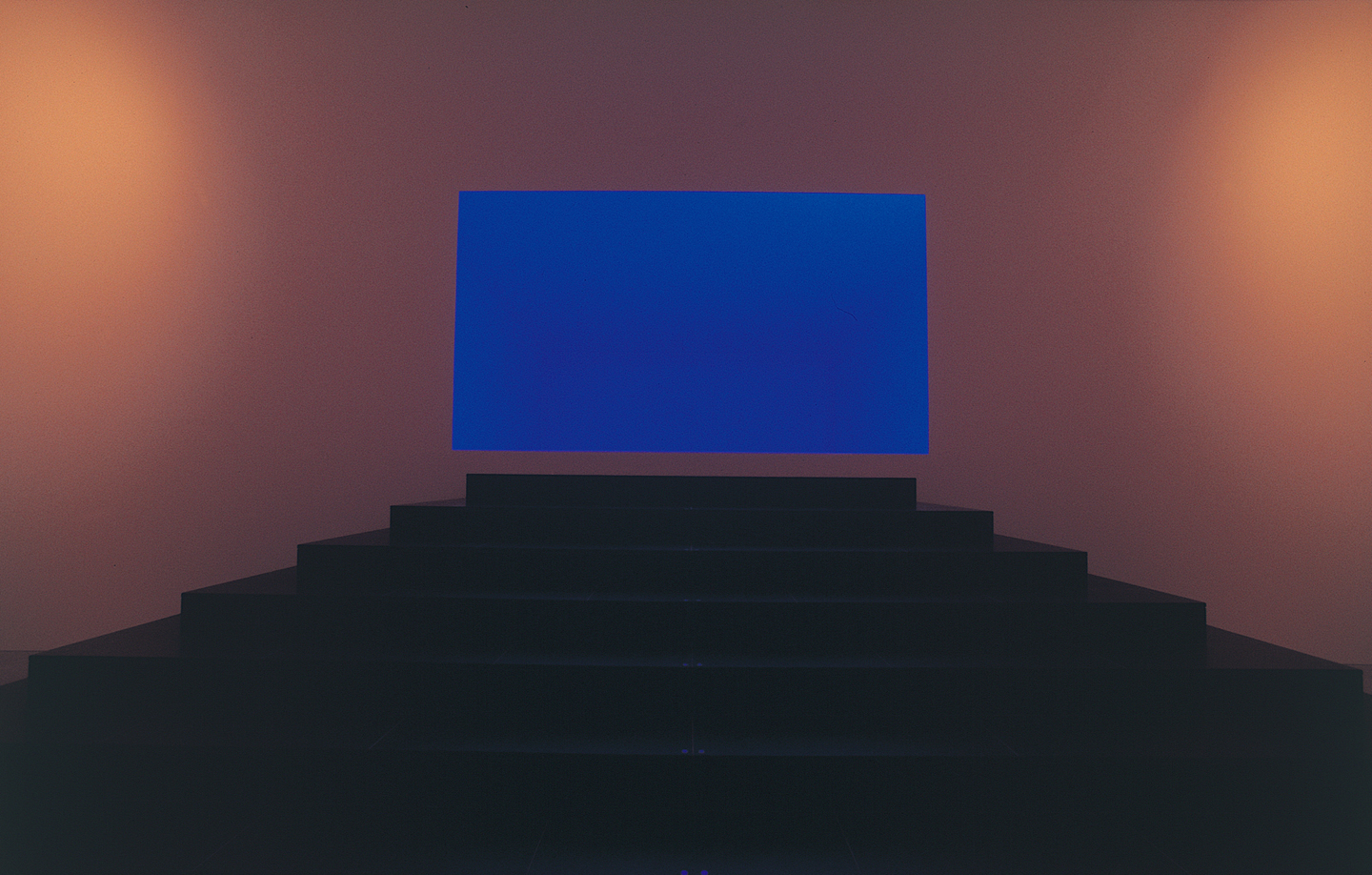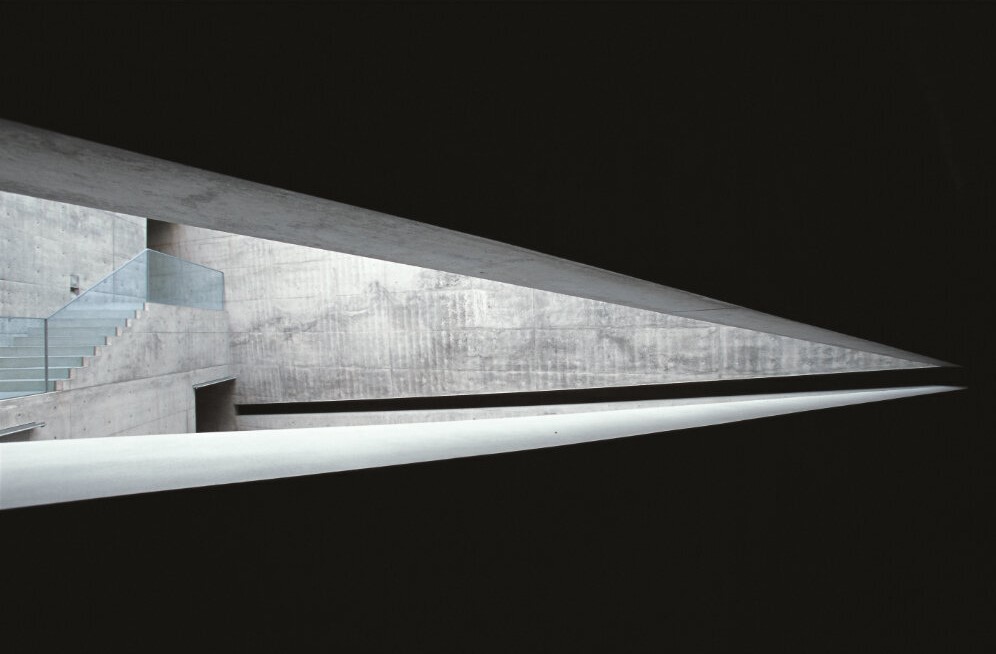- Completed 2004
- Location Naoshima, Japan
- Material Concrete + Wood
- Size 2500 m2
The Chichu Art Museum, also known as the "art museum in the earth", was constructed with the relationship between people and nature at mind. To preserve the surrounding nature, the museum was primarily built underground.
Despite being built underground, the museum absorbs plenty of light and presents them in creative ways, such as exhibits being lit up with patterned shadows or the museum ambience being influenced by the time of the day.

Overhead view of the museum

'Time/Timeless/No Time' by Walter De Maria
casted shadows
Ledges and skylights invite natural light from the seams of the ceiling and shine onto the artists’ works. The strategic use of space and light creates cohesion between the artwork and the concrete walls, as if they are threaded together by the light.

Chichu Art Museum Claude Monet Space
Ando envisioned museum visitors to be guided by light. Using darkness as a frame for the room entrance of the Claude Monet Space, the created emphasized darkness allows the opening to emit a bright light. The light entices visitors to enter. The dimly lit ceiling of the room contrasts the light entering from the seams of the ceiling, creating an expertly controlled amount of light that shines onto the paintings.




